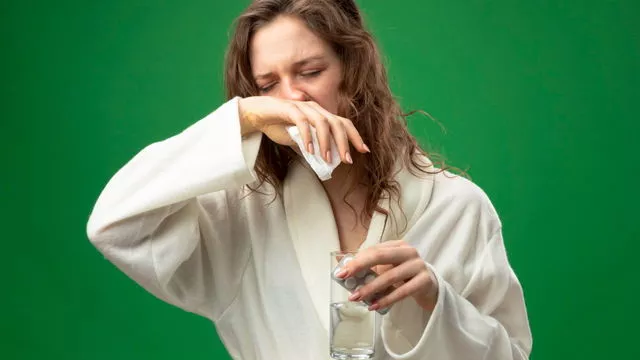A recent study published in the journal Nature Communications examined the association of COVID-19 with long-term allergic conditions. We are looking into how often people who have had this disease suffer from allergies, and whether there are similar risks in people who have been vaccinated.
 3935
3935
After contracting COVID-19, some people experience post-Covid syndrome, which may include immunological phenomena, including those causing various allergic conditions.
The researchers formed a synthetic group of more than 22 million people from South Korea, Japan and the UK. The group had approximately 150,000 participants from South Korea, 77,000 from the UK and 542,000 from Japan – and all of these people were infected with SARS-CoV-2.
What are the results of the study?
After adjusting for all known variables that could influence the result, the researchers found that people infected with SARS-CoV-2 had a 20% higher rate of allergic diseases than those who were not infected. This increased risk was the same for infections with both the original and delta variants of the virus. Specifically, those infected were more than twice as likely to develop asthma, 2.25 times, as those uninfected.
The likelihood of allergic rhinitis was 25% higher in the infected group, although there was a significant increase in food allergies or atopic no dermatitis was observed. Moreover, although the risk of allergic diseases decreased over time after infection, it did not disappear completely. This risk reduction varied from country to country.
However, moderate to severe COVID-19 was associated with a 50% increased risk of general allergies, compared with 14% among people with mild illness.
Those who received the vaccine had a 44% increased risk of allergies. higher (with one dose). After two doses of the vaccine, this figure dropped by 20%. The two-dose group had comparable allergy risk to the control group both overall and for different allergy subgroups.
Conclusions: This is the first study to provide comprehensive evidence of an association between SARS-CoV infection -2 and subsequent outcomes of allergic diseases. It highlights the link between COVID-19, especially moderate to severe COVID-19, and subsequent allergies. And getting vaccinated against COVID-19 with at least two doses reduces the risk of developing new allergies.
The findings generally support earlier studies, but there is a need for more research into the allergic consequences of COVID-19 more broadly and multinational scale.
